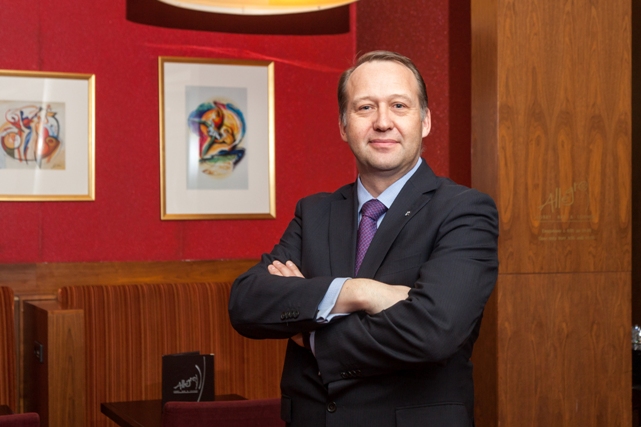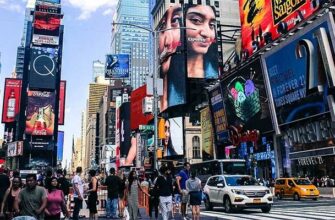Russian tourist agency (Rostourizm) forecasted 15% growth on tourism for 2016, mostly for domestic, but also for inbound travels. The office provided a lot of events to reach the target indicator by promoting “Visit Russia” program, by presenting our country at local and International shows and by concluding contracts with other countries for cross travel. Now Russia became one of the TOP-10 tourist destinations in the world.
The government pays attention to the tourist market because the development of this market can provide benefits for the economy in general and for certain sectors in particular. In average share of tourism in country’s GDP equals 10%, while in Russia it is 1.5% (for the end of 2015). There is a strategic potential for country’s development, which must be used in the next years.
In order to check how the markets and companies benefit from the growing tourism, “E-Vesti” asked experts to help with information on results of 2016 for hotel and tourism business. According to the Working group of the Association of European Businesses (AEB) for hotel and tourism, in 2016 the recovery of the market became evident in Russia comparing to the last two years. This applies to medium and high price segments, where it is now possible to adjust the price for inflation and other expenses.
But the most interesting thing is insight, understanding of some internal processes, and Armin Eberhard, head of the mentioned AEB Working group and General Manager of Renaissance Moscow Monarch Centre Hotel, kindly shared with our readers by the information how tourism influences the market.
E-Vesti: It seems there are some good changes in hotel and tourist business in Russia, isn’t it?
Armin Eberhard: In 2016 in total we’ve seen increase in demand for Moscow as a destination both in corporate and business travel, in conference travel. There was more demand created by internal travel, but the main beneficiaries were Moscow and Saint-Petersburg, and Kazan as well as I know.
At the same time, because of currency weakness we had a great demand from foreign countries: Iran, China and India. That’s the bigger volumes, for sure. Beneficiaries from leasure tours are Moscow and Saint-Petersburg. For leasure tours these two cities are connected, Moscow even more depends on Saint-Petersburg, because tourists consider to go to Saint-Petersburg and then to turn back home, while Moscow is the second site and must be connected to Saint-Petersburg.
Hotels’ business is still trying to adjust the pricing to ruble reality. Because we need basically to make up about 40% of currency devaluation eventually, to come to the same profits that we had three years ago. We’re not daring it, because competition doesn’t allow us to increase the prices further. We have to grow a demand. So, it’s a gradual process, this rate adjustment, it’s not immediate. It comes over long time and usually we’re helped with special one off event.
For example, the World Cap of 2018 will help destinations like Moscow, Saint-Petersburg and Kazan, because with the demand during a period we can adjust rates up. After the event we will not be able to keep the same price, but the prices will be higher than now. We must be able to adjust minimum price to get profitability.
But still the market recovers, I believe in 2017 and 2018, the prices would adjust their ruble value.
E-Vesti: I think, in your industry you should look a step forward and plan mid-term and long-term. What is expected in future?
Armin Eberhard: For the reason that we are not a producing industry, we’re relatively shorter and budgeting for 12 months.
We don’t know how the cycle changes, what is happening in the year’s time with currency or economic environment. Our cost may change sometimes dramatically, and it forms 30-40% of total. The second biggest item of expenses is cost of sales: food costs, supply cost for the room. It is very variable, because most of the food here is imported and depends on foreign currencies.
So, we’re restricting ourselves for very few big congress contracts signed longer than year out. In this case our guests may ask for commitment for one and a half or two years in advance.
E-Vesti: Do you expect this recovery to last until 2018 and in middle-term prospective?
Armin Eberhard: It’s still a bit uncertain.
In summer 2016 there was a great increase in demand. It created more confidence in all the city and we supposed increase for the last quarter 2016. We made a budget for 2017 in September, with a great confidence that after a good summer the next year would be better. But in September, October and November we saw demand weakening again. But then December turned very good month for the whole in the city. So, there are still ups and downs, not a linear improvement yet.
This January, for example, after the strongest December is extremely weak with almost no activity in corporate groups, conference market. Majority in Moscow, of course, is driven by conference business. It is strong when the expo business in Crocus or Expocenter is strong. Then it will push the biggest hotel supplies and all the city will grow. We had a very slow start.
The only demand we see in the group of China, because Chinese New Year is early this year, it is at the end of January. But everything else is very-very low. At the moment the indicators do not show the same demand as we had the last year.
There is no indicator that we have permanent recovery yet. It seems everything is driven by certain ups and downs.
E-Vesti: Usually in crisis times on consumer markets like car retail share of Moscow and Saint-Petersburg in sales grows, while the regions’ share goes down. Now they see the opposite – the share of regions grows, Moscow and Saint-Petersburg was down. Do you see something like that?
Armin Eberhard: Overall, Moscow still had an increase in 2016 year. It had good increase, almost 50% in volume for the whole city. So, for 2016 I couldn’t see the regions had outgrowth. In certain months I could see that.
Moscow it trying to stabilize the price at a higher level, but the regions cannot afford to do that. So, the regions offer a better value of money outsize the big destinations. And companies who are still looking for cost saving will use that. So, they’re considering to go to Moscow Country Club, to Zavidovo, or to Sochi inside of going to Moscow hotel. The latter is finishing in a month its high season; there is a lot of empties. At the moment it is very expensive, but then they will look for business and will become real competitive destination to the main cities. And other regions are developing as well. Kazan has developed a great deal of hotel supply. They’re trying to pull in other outside events, demand of the main cities.
So, Moscow and Saint-Petersburg do not fight with each other, they have to fight with all of Russia. And therefore – yes, the regions have becoming more of value for money and they can take market share away from big cities.
E-Vesti: Our Rostourizm (official office of Russian Tourism) do a lot of attempts in order to attract tourists from abroad opening our offices abroad. They believe that when they invest 1 ruble in promo, they take 8 by visits or something like that. I think you should feel it in your business.
Armin Eberhard: We’re just at the beginning of that. Unfortunately, Moscow is even behind Saint-Petersburg, and Russia is behind any European countries as destination. Most of inbound initiatives ran by city or by the state: Visit London, Visit Paris, Visit Prague. All of those cities are operating with entities as tourism offices already for decades. So, they have invested millions in presenting at major trade shows. By prominent advertising, key federal sources, publication in media, TV advertizing, radios… They put real money behind this.
Before Moscow I was in Prague. Prague tourism office spent a big amount of money working with Russian media. Especially attracting visitors and companies from the Russian market because it’s one of the biggest markets for Prague, they benefit from it.
Russia in this development is way behind competitors. It does work, but it’s a long-term investment. Regular, consistent approach presenting at major trade shows, regularly advertizing over the year for certain destinations, working together with the industry: Airlines, hotels, conference halls, to create a product and a demand.
For example, they invite a big cardiologist conference, show them the best venues in town, museums and create a product for them. This visitor comes back and he understands what a potential he has for his particular business. It is important that the government invites for it, builds private sector to deliver. That takes a lot of coordination; it is complicated process, which is here at the beginning. Together it comes successful.
E-Vesti: Is there any difference among Russian market and Eastern-European and Western-European?
Armin Eberhard: I was in Hungary, I was in Czech Republic, and I don’t think Eastern Europe is a whole. There is a block of countries that develop rapidly. Look at Romania or Czech, for example – there are too many brands, too many hotels. I think that in Eastern Europe the market dynamics is much stronger than in Western Europe where the market is more saturated, stable. In Eastern Europe (Czech, Hungary, etc) the market has ups and downs.
Russia is a different market. Moscow has 17-18 mln people and it is not settled yet. Prague with 2 mln people can compete with Moscow in a total number of hotels. Moscow is bigger than any other city, London or Paris, yet the hotel supply is much smaller. Last year we’ve seen very few hotels opening in the city. The last one was Kievskaya where complex with 700 rooms opened. But it was less than a thousand rooms. In London every year 2’000 rooms are opened.
The rates you can get in London or in Paris are bigger, Moscow is cheaper. Moscow will not be remaining cheaper for long. For sure, it’s gonna be expensive destination.
Moscow for decades was a city for business travels, both external and internal. Only in the last 10 years the city became attractive for tourist travels. It started to compete with Saint-Petersburg, but the latter is still way ahead. During the last 3-4 years we’ve seen amazing transformation of Moscow. There is development of the parks and pedestrian zones. It’s a beautiful city. My wife (she’s Spanish) said that in the center she works for here Moscow is considered to be the prettiest city in Europe now. Paris, Berlin, London are settled cities, they cannot have these developments yet, they’re more stagnant. Now the tourist demand will increase based on Moscow development. And when we’ll see normalization of our relationship with Europe, we’ll have an increase in tourism.
Sources:
AEB, Russia Tourism, Renaissance Moscow Monarch Centre




